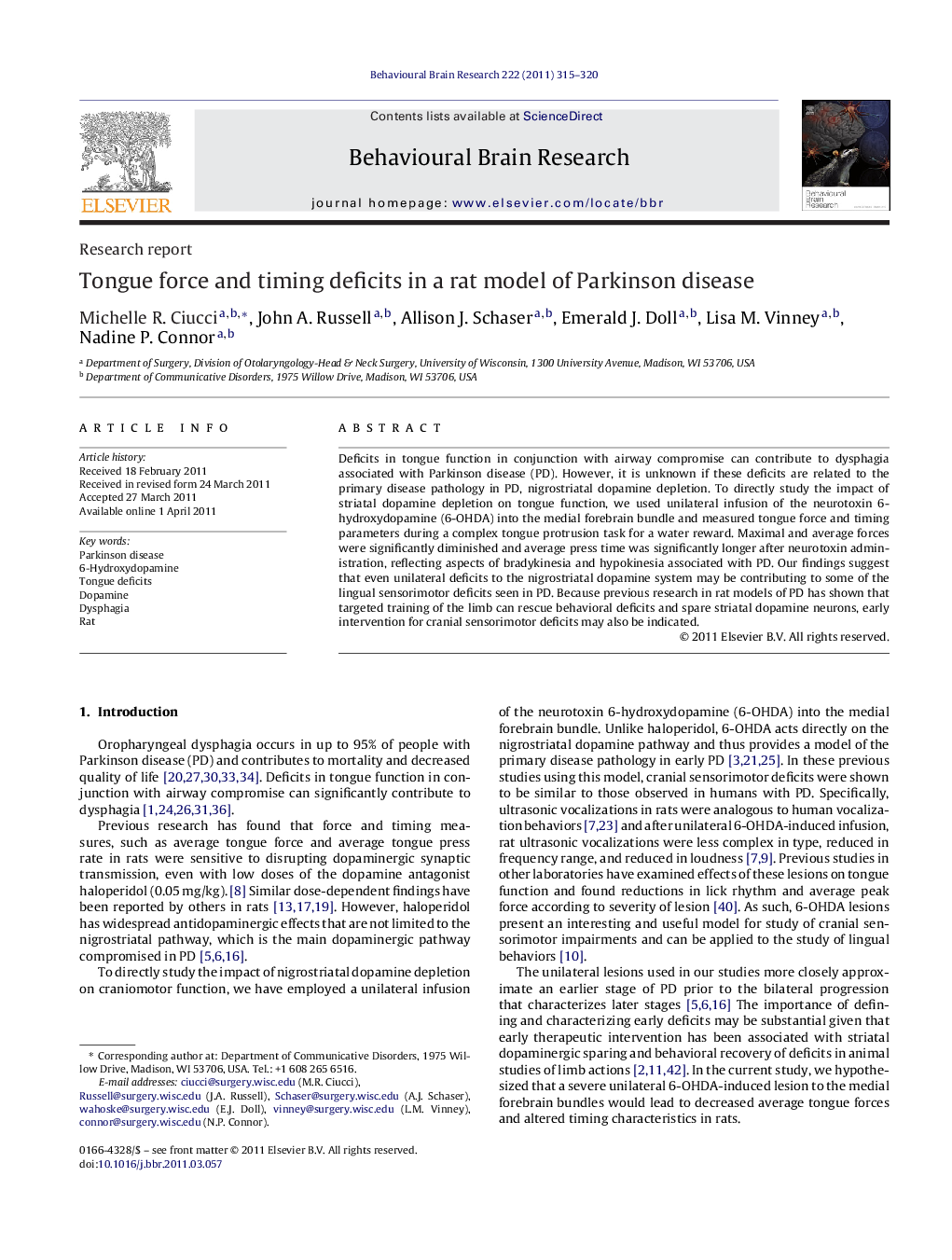| Article ID | Journal | Published Year | Pages | File Type |
|---|---|---|---|---|
| 6259726 | Behavioural Brain Research | 2011 | 6 Pages |
Deficits in tongue function in conjunction with airway compromise can contribute to dysphagia associated with Parkinson disease (PD). However, it is unknown if these deficits are related to the primary disease pathology in PD, nigrostriatal dopamine depletion. To directly study the impact of striatal dopamine depletion on tongue function, we used unilateral infusion of the neurotoxin 6-hydroxydopamine (6-OHDA) into the medial forebrain bundle and measured tongue force and timing parameters during a complex tongue protrusion task for a water reward. Maximal and average forces were significantly diminished and average press time was significantly longer after neurotoxin administration, reflecting aspects of bradykinesia and hypokinesia associated with PD. Our findings suggest that even unilateral deficits to the nigrostriatal dopamine system may be contributing to some of the lingual sensorimotor deficits seen in PD. Because previous research in rat models of PD has shown that targeted training of the limb can rescue behavioral deficits and spare striatal dopamine neurons, early intervention for cranial sensorimotor deficits may also be indicated.
⺠Unilateral lesions to the medial forebrain bundle with 6-hydroxydopamine lead to tongue force and timing deficits. ⺠The nigrostriatal pathways appear to modulate some aspects of tongue function during complex licking tasks.⺠Our findings suggest that even unilateral deficits to the nigrostriatal dopamine system may be contributing to some of the lingual sensorimotor deficits that are associated with parkinsonian dysphagia.
